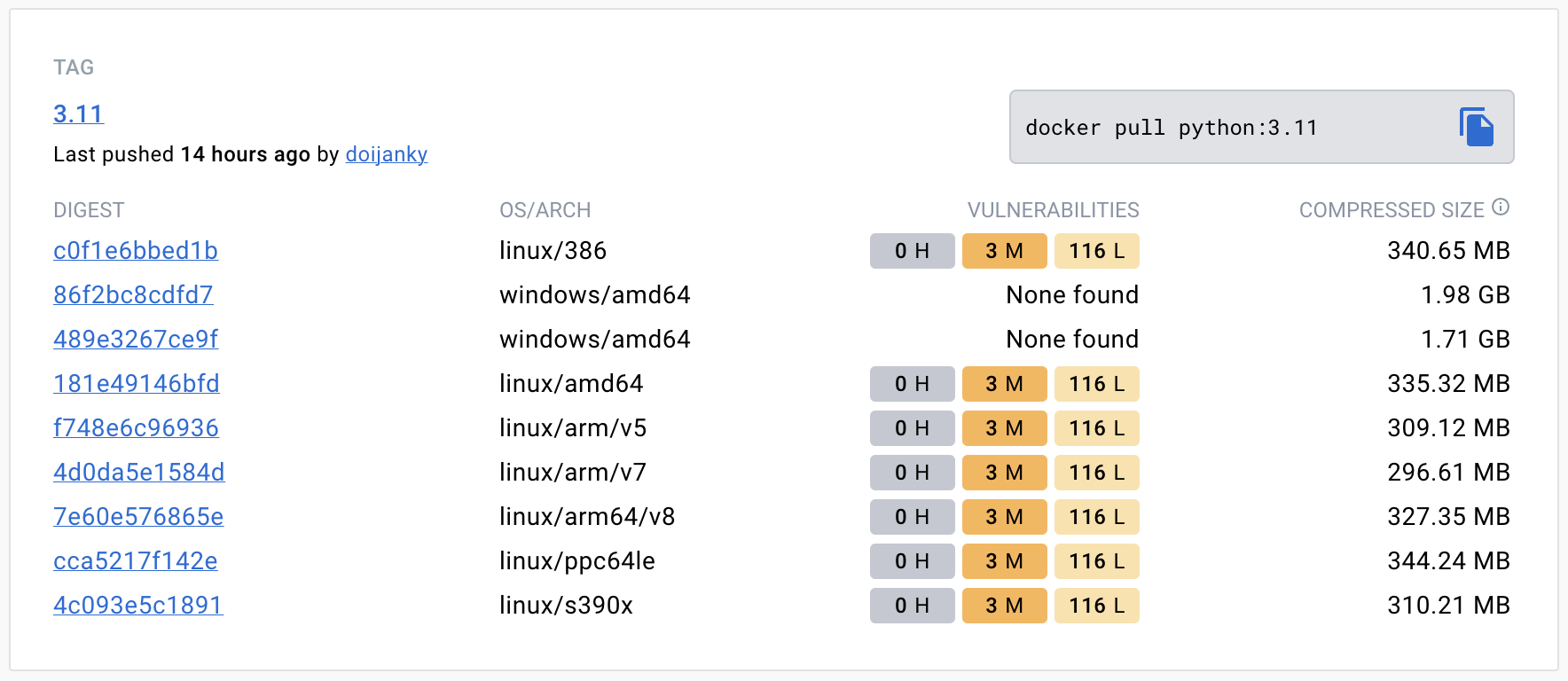Build multi-arch Docker images in GitHub Actions
Publishing images to GitHub Packages
Let’s say we have a repository that includes a Dockerfile. We can utilize a GitHub workflow to:
- Check out the repository
- Log in to the GitHub Container Registry (ghcr.io)
- Extract metadata
- Build and push the Docker image to our specified registry
name: Create and publish a Docker image
on:
push:
tags:
- 'v*'
env:
REGISTRY: ghcr.io
IMAGE_NAME: ${{ github.repository }}
jobs:
build-and-push-image:
runs-on: ubuntu-latest
permissions:
contents: read
packages: write
steps:
- name: Checkout repository
uses: actions/checkout@v3
- name: Log in to the Container registry
uses: docker/login-action@65b78e6e13532edd9afa3aa52ac7964289d1a9c1
with:
registry: ${{ env.REGISTRY }}
username: ${{ github.actor }}
password: ${{ secrets.GITHUB_TOKEN }}
- name: Extract metadata (tags, labels) for Docker
id: meta
uses: docker/metadata-action@9ec57ed1fcdbf14dcef7dfbe97b2010124a938b7
with:
images: ${{ env.REGISTRY }}/${{ env.IMAGE_NAME }}
- name: Build and push Docker image
uses: docker/build-push-action@f2a1d5e99d037542a71f64918e516c093c6f3fc4
with:
context: .
push: true
tags: ${{ steps.meta.outputs.tags }}
labels: ${{ steps.meta.outputs.labels }}
Build and publish multi-arch images
Depends on the type of the host machines, images can be built for multiple platforms, e.g. linux/amd64, linux/arm64/v8, etc.

Set up QEMU and Buildx
The next thing is to enable QEMU. Basically it allows GitHub action host machine to emulate different architectures.
QEMU is a generic and open source machine & userspace emulator and virtualizer. QEMU is capable of emulating a complete machine in software without any need for hardware virtualization support.
buildx is a Docker CLI plugin for extended build capabilities with BuildKit
.
--- a/.github/workflows/build-publish-image.yml
+++ b/.github/workflows/build-publish-image.yml
@@ -20,6 +22,12 @@ jobs:
- name: Checkout repository
uses: actions/checkout@v3
+ - name: Set up QEMU
+ uses: docker/setup-qemu-action@v2
+
+ - name: Set up Docker Buildx
+ uses: docker/setup-buildx-action@v2
Specify the platforms in docker/build-push-action
In docker/build-push-action
, we can set platforms to a list of target platforms to build, separated by comma. In our example, we only needs to build linux/amd64 for all amd64 machine, and linux/arm64/v8 for Apple Silicone MacBooks.
--- a/.github/workflows/build-publish-image.yml
+++ b/.github/workflows/build-publish-image.yml
@@ -37,6 +45,7 @@ jobs:
uses: docker/build-push-action@f2a1d5e99d037542a71f64918e516c093c6f3fc4
with:
context: .
- push: true
+ push: ${{ github.event_name != 'pull_request' }}
+ platforms: linux/amd64,linux/arm64/v8
tags: ${{ steps.meta.outputs.tags }}
labels: ${{ steps.meta.outputs.labels }}
View them on GitHub Packages
Once the GitHub workflow has been triggered and the images have been built successfully, we can see them from the OS/Arch tab.
Final thoughts
As I just discovered, linux/arm64/v8 is normalized as just linux/arm64.
docker image inspect ghcr.io/imfing/keras-flask-deploy-webapp --format '{{.Os}}/{{.Architecture}}'
linux/arm64